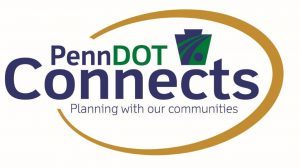
Recognizing transportation’s role in connecting communities and supporting economic development, state Department of Transportation (PennDOT) Secretary Leslie S. Richards recently announced PennDOT Connects, an approach that will enhance local engagement and improve transportation-project planning, design and delivery.
“We know that transportation plays a huge role in community identities and economies, and we take our responsibility as stewards of the system very seriously,” PennDOT Secretary Leslie S. Richards said in making the announcement on February 23. “Through PennDOT Connects, we’re putting innovation, local resources and strong partnerships to work so we can have the most sustainable, inclusive transportation assets possible.”
The new approach to project planning and development expands the department’s requirements for engaging local and planning partners by requiring collaboration with stakeholders before project scopes are developed. PennDOT Connects aims to transform capital and maintenance project development by ensuring that community collaboration happens early, and that each project is considered in a holistic way for opportunities to improve safety, mobility, access, and environmental outcomes for all modes and local contexts. Earlier collaboration will ensure that projects meet current and projected needs as much as possible, and can reduce costly changes further in the project development process.
Specific areas to be discussed during collaboration include, but are not limited to: safety issues; bicycle/pedestrian accommodations; transit access; stormwater management; utility issues; local and regional plans and studies; freight-generating land uses and more.
PennDOT Connects requirements to meet with local governments, Metropolitan Planning Organizations (MPO) and Rural Planning Organizations (RPO) are being implemented on new projects on the state’s 2017-2020 Transportation Improvement Program (TIP).
Collaboration will occur for projects without previously defined project phases, those that haven’t started Preliminary Engineering or started Preliminary Engineering after July 1, 2016. This equates to roughly 280 projects worth $2 billion.
To complement this ongoing collaboration, PennDOT is incorporating the policy into its applicable manuals and program processes. In addition, training is being developed for department staff and professionals at the MPOs and RPOs.
Projects on the state’s 2017-2020 TIP are viewable at www.projects.penndot.gov.





